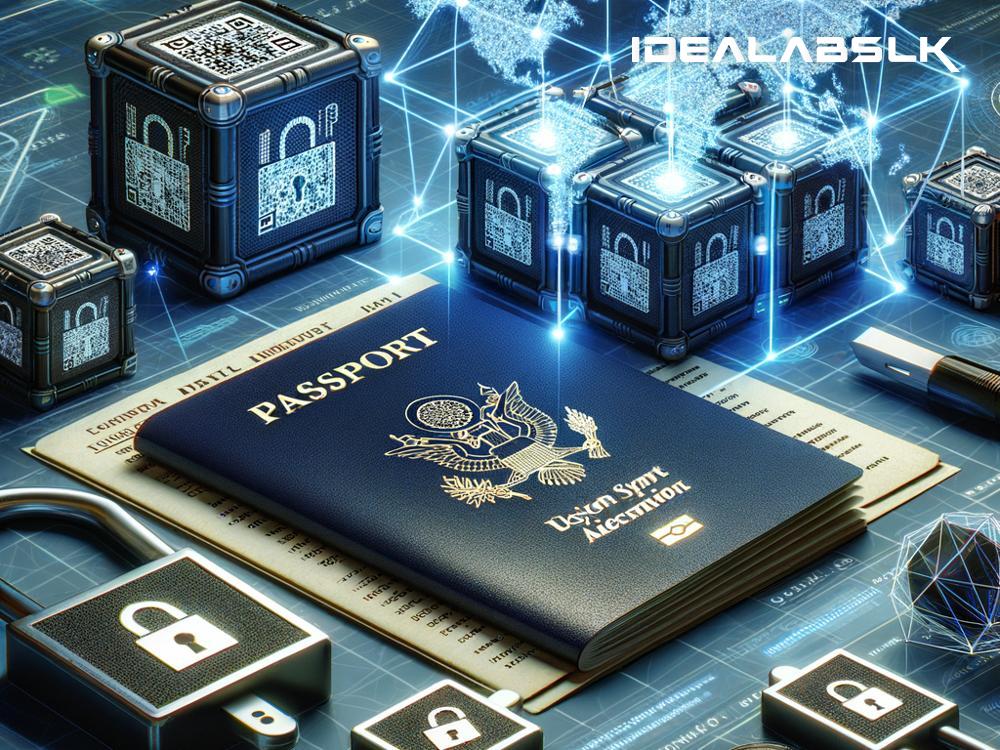The Role of Blockchain in Secure Digital Identities
In the digital age, identity theft and personal data breaches have become more common and sophisticated. From bank accounts to social media profiles, our personal information is all over the internet, making it vulnerable to hackers and fraudsters. This is where blockchain technology comes in as a potential game changer in securing our digital identities. But what exactly is blockchain, and how does it help in this regard? Let’s dive in, in simple English.
What is Blockchain?
Imagine a digital ledger or a record book that’s shared among a network of computers. This ledger records transactions or agreements, which are grouped in blocks. Once a block is completed, it’s added to a chain of previous transactions – hence the name, blockchain. This is done in a way that is secure, transparent, and cannot be tampered with, thanks to cryptography.
Think of it like adding entries into a diary that everyone has a copy of. If someone tries to change an entry in their copy, it wouldn't match all the other copies, and the change would be rejected. That's a simple way to look at the security and trust built into blockchain technology.
Blockchain and Digital Identities
Now, let’s understand how blockchain can help in creating secure digital identities. Your digital identity is essentially a way to prove you are who you say you are, online. It can include information like your name, date of birth, social security number, and more. Current systems store this sensitive information in centralized databases, making them attractive targets for cyber-attacks.
Blockchain technology proposes a decentralized approach. Instead of having all your information stored in one place, it can be stored on a blockchain, distributed across many computers. This reduces the risk of data breaches, as there is no single point of failure.
Moreover, blockchain gives you control over your digital identity. You decide what information to share and with whom, using unique digital keys. Think of these keys like complex digital signatures that only you own. When you need to prove your identity, you can do so without revealing all your personal information, safeguarding your privacy.
The Benefits of Blockchain for Digital Identities
-
Security: As mentioned, blockchain's decentralized nature makes it incredibly difficult for hackers to access your information. The encryption and unique keys add extra layers of security.
-
Privacy: You can control exactly what information you share. For example, if you need to prove you are over 18, you can do so without revealing your exact age or birthdate.
-
Efficiency: Verifying identities can be done quickly and securely, without the need for intermediaries. This can speed up many processes, from opening a bank account to voting in elections.
-
Trust: With blockchain, trust is built into the system. Organizations can be confident about the validity of the digital identities, reducing the risk of fraud.
Challenges and Considerations
While blockchain has the potential to revolutionize digital identities, there are still challenges to be addressed:
-
Technology Adoption: For blockchain-based digital identities to become mainstream, governments, businesses, and individuals all need to adopt this technology.
-
Regulation: We’ll need clear regulations to govern the use and protection of digital identities on blockchain systems.
-
Interoperability: Different blockchain systems need to work together seamlessly for a universal digital identity solution to be feasible.
The Future of Digital Identities with Blockchain
The path towards secure digital identities powered by blockchain is promising but requires more development, collaboration, and regulation. As technology evolves, we might see a future where our digital identities are as natural and secure as our physical ones, all thanks to blockchain.
In simple terms, blockchain offers a new way to think about securing our digital selves in an increasingly online world. By decentralizing the storage of data, enhancing security, and putting control back into the hands of individuals, blockchain technology proposes a brighter, safer future for our digital identities.
Whether it’s signing up for a new service online, voting, or simply proving who you are, blockchain could make these everyday tasks more secure and efficient. As we navigate this digital age, embracing and understanding technologies like blockchain will be key to protecting what’s most valuable – our identities.

